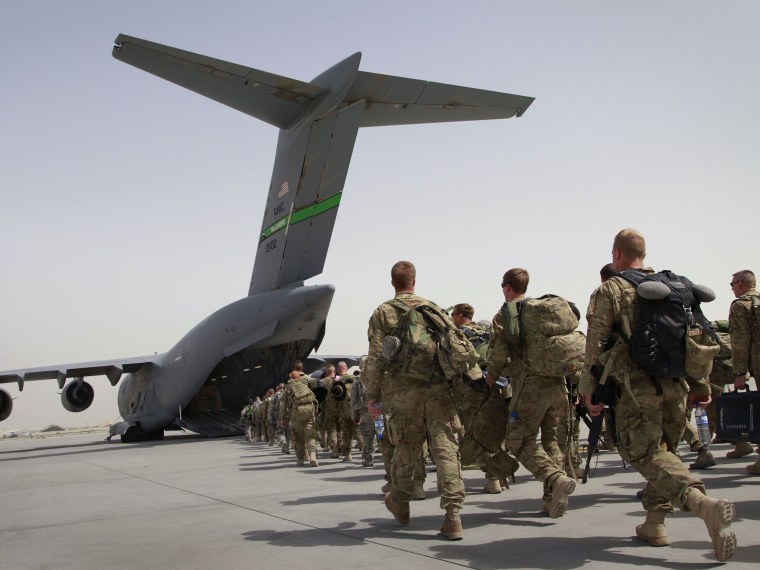The House is set to vote on a defense bill this week that could give service members a license to harass and discriminate against their colleagues, according to gay rights and civil liberties groups.
"It's really a carte blanche to be anti-gay, or anti-anything else," says Zeke Stokes, a spokesperson for Outserve-Servicemembers Legal Defense Network, a group that advocates for gay, lesbian and bisexual service members. "This could be extended to someone who has a problem serving around Latino service members, or women, or African-American service members."
The House version of the 2014 National Defense Authorization Act contains an amendment authored by Republican John Fleming of Louisiana which carves out a broad religious exception he says is necessary to protect the religious views of service members. The language of the bill states that the military "shall accommodate the beliefs, actions, and speech," except "in cases of military necessity."
It's the "actions and speech" part of the bill that has gay rights advocates worried, because it suggests that commanders will not be able to discipline service members who, for example, use racial or gender slurs to refer to their colleagues who say say they are doing so because of their religious beliefs. The bill does not mention sexual orientation, so the religious exemption could apply to anyone. Commanders would also be unable to act unless the "beliefs, actions and speech" of the service member cause "actual harm" good order and discipline rather than "threaten" to harm it.
"The intent of the language is to encourage claims to use religion as a license to discriminate and further tie the hands of unit commanders to be able to deal with these issues when they arise," says Ian Thompson of the American Civil Liberties Union. The House Armed Services Committee passed the defense bill by a near-unanimous vote last week.
Since the repeal of Don't Ask Don't Tell, Republicans have attempted to establish broad exemptions for the religious views of service members. Prior to the repeal, Republicans predicted breakdowns in unit cohesion and discipline that would occur if service members were allowed to serve openly. Years later, those conflicts haven't materialized in large numbers, and advocacy groups see the exemptions as attempts to throw a wrench into a repeal process that has gone relatively smoothly.
On Tuesday, the Obama administration issued a statement of policy that said it "strongly objects" to Fleming's language. Fleming, in response, released a statement saying that Obama was "continuing his war on free speech," as well as "endorsing military reprimands of members who keep a Bible on their desk or express a religious belief."
Department of Defense regulations already state that religious views will be accommodated as long as they do not have "an adverse impact on mission accomplishment, military readiness, unit cohesion, standards, or discipline." Lt. Col. Todd Breasseale, a Pentagon spokesperson, says Fleming's language is unnecessary. "Current law allows for reasonable accommodations of religious freedoms, as well as protecting the dignity of troops, and the good order and discipline of units," Breasseale says. Service members' religious views are also protected by the First Amendment.
Much of the debate over the defense bill has been over how to deal with the epidemic of sexual assault in the military. Though it may not seem like it at first glance, Thompson says that the debate over sexual assault and Fleming's amendment are directly related.
"When there's so much focus on sexual assault in the military," Thompson says, "it's very puzzling why a majority of members of the House Armed Services Committee voted to make it more difficult for commanders to deal with harassment of service members."
